
Do you have what you need to make your garden grow?


Garden Center
Store Hours
Mon-Sat:
6:00am - 9:00pm
Sun:
8:00am - 8:00pm
Curbside:
09:00am - 6:00pm
Location
Popular at Your Garden Center
Trending Garden Supplies in May
Trending Live Plants
Garden Project Calculators
;Resize=(703,395.44))
Grass Seed Calculator
When you're ready to seed your lawn, our calculator helps you estimate the amount of grass seed you'll need to get the job done.
;Resize=(703,395.44))
Mulch Calculator
Enter your preferred material, the square footage and mulch depth of the coverage space for accurate results.
;Resize=(703,395.44))
Fencing Calculator
We'll calculate the amount of fencing you should purchase based on your property needs.
Shop Outdoor and Garden Brands
Frequently Asked Questions About Gardening
What planting zone am I in?
Check the USDA planting zone map, as planting zones have shifted slightly through the years. Planting zones with higher numbers can plant earlier in the year. Choose plants that are meant for your zone and increase your odds of gardening success.
Can I plant seeds directly in the ground?
If the soil isn't frozen or cold, consider planting your flower, fruit, or veggie seeds directly into your garden. This is called the "direct sow" method. The time to plant will be after the threat of frost is gone for the season, as seedlings and sprouts can't weather those conditions. You can also start your seeds indoors if you'd like. Consult your seed envelope for how and when to sow seeds.
Do you carry organic plants and seeds?
We offer many organic gardening options, including organic veggie seeds and fruit seeds, as well as organic herb and flower seeds that are subject to availability. We also carry the organic fertilizer to feed your plants and the organic soil to plant them in.
Do I have to harden off my seedlings before planting them outside?
Yes, if you raised plants indoors from seeds in your own plant nursery, harden them first before you transplant them. Hardening is the process of getting them used to outdoor life, spring rains, and temperature swings. It slows their growth until they're strong and ready to take off during a spring warm front. Hardening also makes your plants more resilient to a sudden cold snap. Speak to a garden center associate or read your seed packets for more information.
Can I strengthen my seedlings before planting them outdoors?
Get your sprouts used to breezy spring days and storms with a fan and keep fungus from growing in damp conditions. Set up an oscillating floor fan on low to mimic the wind. Just the gentlest breeze for several hours a day will do the trick. They'll gain strength even though you shouldn't see them moving. If you don't set up a fan, your seedlings may be more sensitive to strong winds. Try to plant between storms.
What are seed tapes?
If you want more guidance in planting or are dealing with extremely tiny seeds, consider seed tapes. They're biodegradable pieces of paper with tiny seeds affixed at regular intervals. Just bury the tape and water as directed. If all goes well, you'll have perfectly spaced sprouts pop up soon.
Garden Project Ideas
The Home Depot Garden Center at Cedartown, GA
Celebrate Springtime Gardening
It's time to start thinking of spring. Clean out the shed and sweep the gazebo to prepare for fragrant breezes, warmer temperatures, and sprouts poking up out of the ground. Planting seeds indoors with grow lights means you'll be ready to transplant spring flowers and young veggie plants when the ground thaws and the frosts are through. You might even want to plant organic seeds directly into the earth. What better way to start than by exploring your favorite local plant nursery, The Home Depot Garden Center in Cedartown, GA?
Plant Hardiness Zones Explained
The first thing to know when planting veggies, spring flowers, and other seeds is your planting zone. Every location in the U.S. and its territories is sorted by climate. Find your zone on the USDA growing zone map and learn when to plant seeds.
For example, you could transplant bell peppers outdoors in mid-March in Zone 10, but not until the end of May in Zone 4. For best results, choose plants in your zone number or less. In other words, a Zone 5 garden can support plants listed as Zones 1–5. You can plant seeds indoors roughly a month before you can plant them outside, known as direct sow. Be sure to read your seed packet for details. If you start plants a little later than recommended, it's not ideal, but it will even out as time passes.
Gardening in Your Growing Zone
The Mid-South is in Zones 7–9, with coastal regions being warmest and the zone number decreasing to an 8, then a 7 as you go up in elevation to the foothills of the Georgia mountains. Just check your planting zone, then consult the seed packet for the most accurate instructions for each plant. If you know you're in a micro-climate near a lake, mountain, or valley, zoom in on the USDA planting map for exact details down to street level.
In balmy Zone 9 on the coast, you can begin planning and planting indoors in January if you'd like. Zones 8 and 7 generally have a slightly later recommendation for indoor starts. Cruciferous veggies and garden favorites, like cucumbers, peppers, and tomatoes, all do well when started inside your home. Greens like spinach, artichokes, and fragrant herbs, including oregano, basil, and parsley, also don't mind an early beginning. You can sow flower seeds and watch them mature under the grow lights, too. Whatever you choose to grow, tend them carefully and transplant them when the threat of frost is gone for the season.
Plant Seeds Outside With Direct Sow
Planting seeds into your garden soil, or using the direct sow method, is an alternative option. It doesn't give you as much organized planning in terms of reliability and spacing compared to indoor starts. However, if you like to go with the flow, follow the instructions on your seed pack and try it out.
Your seeds might get washed away or struggle to grow, or bugs or critters might eat the sprouts. But if you're really fortunate, you might get strong sprouts, perfectly spaced and ready to grow all spring. The reality of your garden will usually be somewhere in between, and spreading out tiny sprouts throughout the soil isn't so bad. You know those sprouts are hardy, although there are no guarantees in the long term.
Start Seeds Indoors
If you're eager to get growing or would like more control in the care and feeding of seedlings, start your seeds indoors in your own plant nursery. In general, you can plant seeds indoors about a month before you can do it outside. Like direct sow, you push the seeds into the soil as directed on the seed packet, but that's where the similarities end.
You're responsible for giving them quality substitutes for rain and sun. Keep your seeds warm with heat mats and grow lights, water them carefully with a mister or watering can, then thin them as they germinate in groups of three. Give them a boost with a gently blowing fan as they lengthen into sprouts if you'd like. Harden them off to get them used to outdoor conditions, then transplant them into your garden when they're big enough.
Transplant Young Plants Into Their New Homes
When your plants have three or four real leaves — different from miniature seedling leaves — transplant them. In quality soil, dig a hole that's the same size as the dirt plug where your transplant has been growing. If your ground soil isn't great, dig a slightly bigger hole and fill the extra space with nutrient-rich topsoil. Apply fertilizer as directed, either in the hole or on top of the soil after it's planted. Don't apply more than recommended, as you could burn the plant and kill it instead of helping it.
Protect Your Garden With Mulch
Finish your flower bed with compost and mulch. Mulch keeps your soil moist and controls weeds. Compost enriches the soil so your garden can grow even better. It may help foster stronger and larger plants that bear more fruit and flowers. Mulch and compost can be purchased in-store or created at home. The next time you're looking for "mulch near me," stop by the Garden Center to get the perfect amount.
Greet the Spring
Early spring is an exciting time in the world of gardening. Prepare to fertilize your lawn, plan your garden and landscaping, and browse The Home Depot nursery to find inspiration on what to plant when the weather warms. For those without lawns, consider adding artificial grass, an outdoor rug, or a pellet grill to your patio or balcony. Shop for the seeds, fertilizer, and soil you need in the aisles of your Cedartown, GA Garden Center, online, or on our mobile app. Let's get growing together.
Nearby Stores
Find Another Store
103 Hicks Dr
Rome, GA 30161
15.00 mi
Mon-Sat: 6:00am - 10:00pm
Sun: 8:00am - 8:00pm
100 Gentilly Blvd
Cartersville, GA 30120
27.30 mi
Mon-Sat: 6:00am - 10:00pm
Sun: 8:00am - 8:00pm
210 Cooley Way
Villa Rica, GA 30180
28.00 mi
Mon-Sat: 6:00am - 10:00pm
Sun: 8:00am - 8:00pm
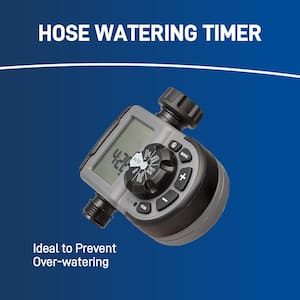
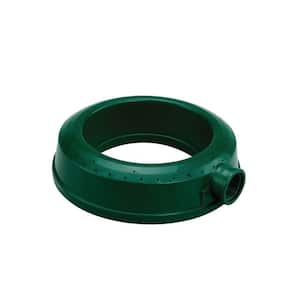
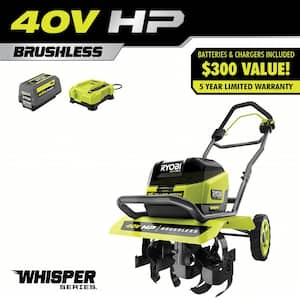
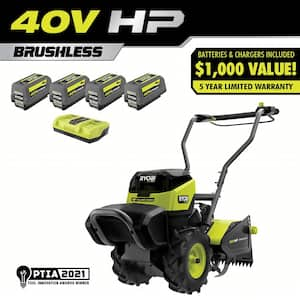
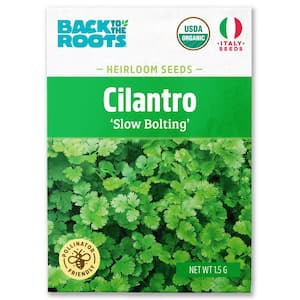
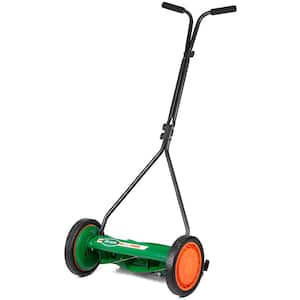
)
)
/17_514245_S_012_Product%20Image%20(square).jpg?im=Resize=(300,300))
;Resize=(300,300))
)
)
)
)
)
/2023_P2_Rain_Barrels_Product%20Image%20(square).jpg?im=Resize=(300,300))
)
;Resize=(300,300))
;Resize=(300,300))
;Resize=(300,300))
/12_SOIL_B_0420_Social%20media%20(square).jpg?im=Resize=(300,300))
;Resize=(300,300))
)
)
;Resize=(300,300))
;Resize=(300,300))
;Resize=(300,300))
;Resize=(300,300))
)
)
;Resize=(300,300))
;Resize=(300,300))
;Resize=(300,300))
;Resize=(300,300))
;Resize=(300,300))
)
/18Patio_Camden_Seagrass_5pcSeating_Planters_302468736_DTL3_L_Social%20media%20(square).jpg?im=Resize=(300,300))
;Resize=(300,300))
;Resize=(300,300))
;Resize=(300,300))
)
;Resize=(300,300))
;Resize=(300,300))
)
;Resize=(300,300))
)
.jpeg?im=Crop,rect=(363.69230769230774,1.2307692307692308,958.7692307692308,958.7692307692308);Resize=(300,300))
;Resize=(300,300))
)
;Resize=(300,300))
;Resize=(300,300))
)
;Resize=(300,300))
)
)
;Resize=(300,300))
;Resize=(300,300))
)
)
;Resize=(300,300))
)
;Resize=(300,300))
;Resize=(300,300))
)
)
;Resize=(300,300))
)
)
/Capello_Spring_Mum_10in_Social%20media%20(square).jpg?im=Resize=(300,300))
;Resize=(300,300))
)
)
;Resize=(300,300))
)
)
;Resize=(300,300))
)
)
;Resize=(300,300))
;Resize=(300,300))











































